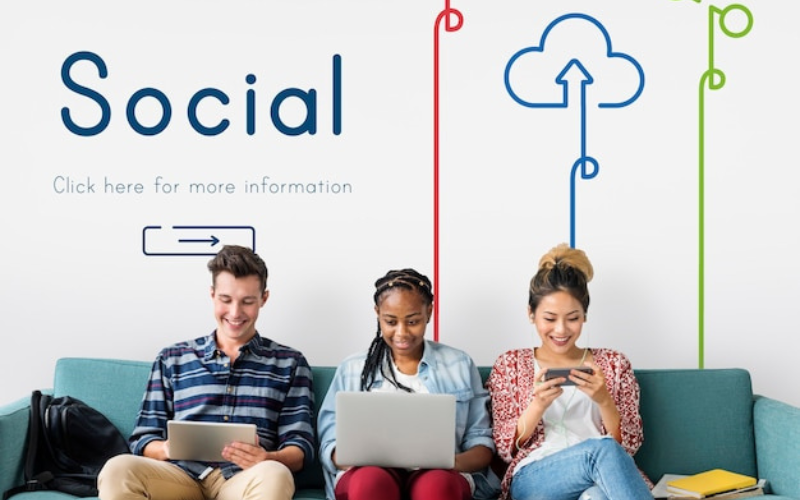13 March 2024 |
By - Krishna Mohod
Introduction:

In today's interconnected world, social media has transformed the way we communicate, share information, and connect with others. While it is often associated with personal use, social media platforms also hold immense potential for higher education.
In this blog post, we will explore the importance of social media in higher education and how it can benefit students in their academic pursuits. From fostering collaboration to accessing valuable resources, social media has the power to revolutionize the learning experience and prepare students for the challenges of the modern world.
1. Global Networking and Collaboration:

Social media enables students to connect with peers, professors, and professionals from around the globe, expanding their network and fostering collaborations.
Platforms like LinkedIn, Twitter, and Facebook groups provide avenues for students to engage in discussions, share ideas, and seek guidance from industry experts. These connections can lead to research opportunities, internships, and career prospects, offering students a wider perspective and access to diverse knowledge.
2. Enhanced Communication and Engagement:
Social media platforms facilitate seamless communication between students and faculty members, creating an inclusive learning environment. Through course-specific groups, students can engage in discussions, seek clarifications, and collaborate on projects outside the confines of the classroom.
Faculty members can share important updates, resources, and even host virtual office hours, enhancing student-teacher interactions and promoting active engagement in the learning process.
3. Access to Valuable Resources:
Social media platforms serve as a gateway to a wealth of educational resources. Educational influencers, institutions, and organizations often share informative content, including research papers, articles, podcasts, and videos.
Students can follow these accounts and gain access to a curated stream of valuable information, which can supplement their coursework, expand their knowledge, and stimulate intellectual curiosity.
4. Personal and Professional Branding:
Social media allows students to build and showcase their personal and professional brand. By creating a professional online presence on platforms like LinkedIn, students can highlight their academic achievements, skills, and projects. This digital portfolio can be an invaluable asset when seeking internships, jobs, or graduate programs, as it provides a platform to demonstrate their capabilities to potential employers or admissions committees.

5. Opportunities for Personal Growth and Development:
Social media platforms offer a multitude of communities and groups focused on personal growth, self-improvement, and specialized interests. Students can join these communities to connect with like-minded individuals, participate in discussions, and gain insights from experienced professionals. This exposure can broaden their horizons, foster critical thinking, and inspire them to explore new areas of study or career paths.
Conclusion:
The integration of social media in higher education brings forth a myriad of benefits for students. From global networking and collaboration to enhanced communication and access to valuable resources, social media has the power to transform the educational landscape.
By harnessing its potential, students can cultivate a broader understanding of their field, develop essential skills, and prepare themselves for the professional world. However, it is crucial to navigate social media mindfully, maintaining a balance between academic use and personal engagement. With a strategic approach, social media can become an invaluable tool in the pursuit of higher education and lifelong learning.